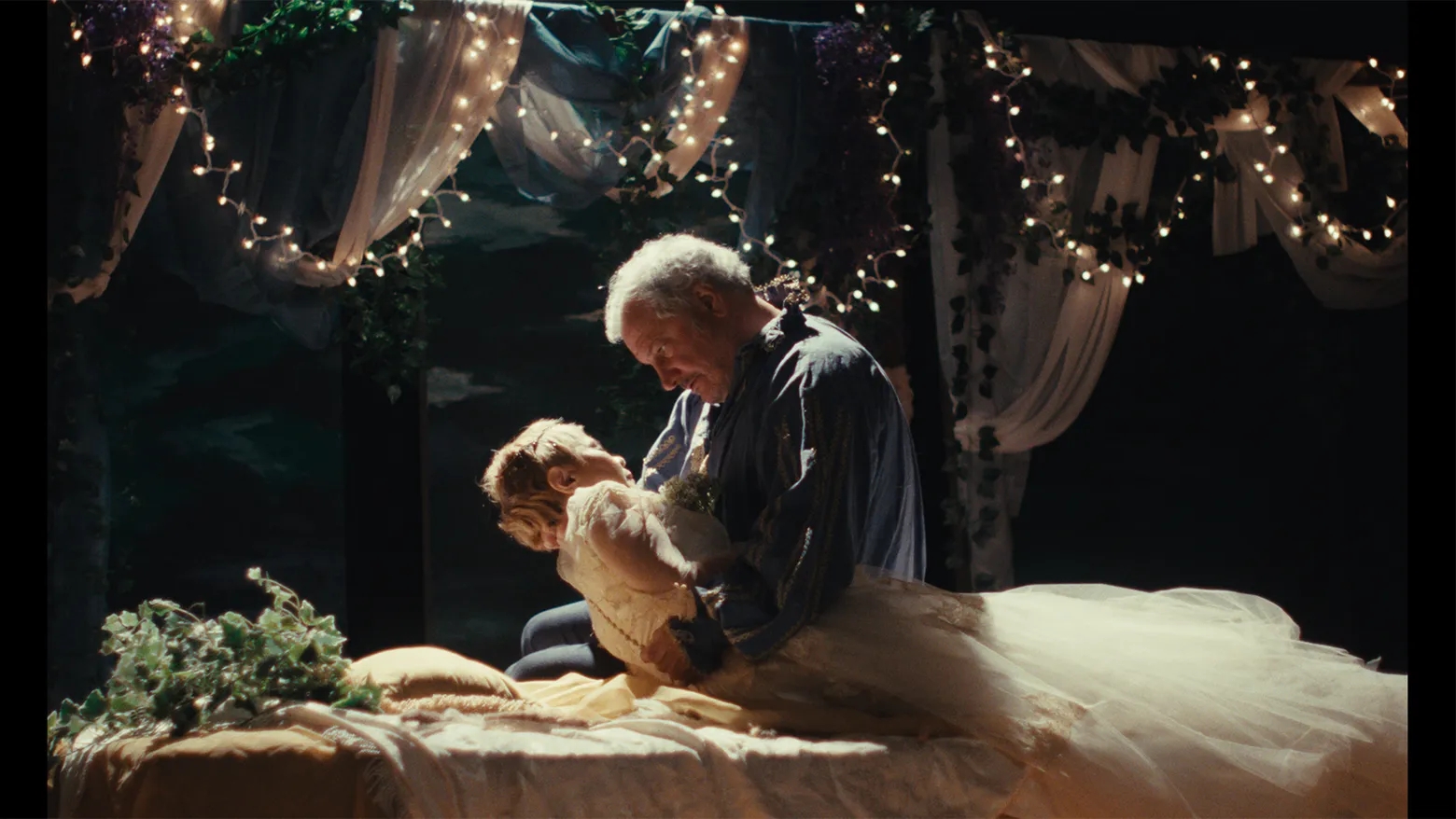The idea of art coming to the rescue of philistines is an attractive one. Films like The Lives of Others have shown how even Stasi agents can have souls if the right Rilke poem releases them. I didn’t find Florian Henckel von Donnersmarck’s film convincing, though. Concentrating on a midwestern dad who learns to feel again by starring in a local production of Romeo and Juliet after the suicide of his beloved son, Ghostlight is more plausible because implausibility rests at the heart of the production: directors Kelly O’Sullivan and Alex Thompson (Saint Frances), from a screenplay by O’Sullivan, use the skepticism of Dan Mueller (played by Keith Kupferer) to show how the communitarianism of theater coax a man to step outside himself — or to feel more completely himself. A good-natured attempt at the kind of poignancy that movies about therapy indulge in, Ghostlight isn’t memorable and about twenty minutes too long, but it’s an amiable way to spend 110 minutes.
A construction worker by profession, Dan’s one of those salt-of-the-earth types raised to eschew the outward display of emotions, a trait that frustrates his teenaged daughter Daisy (Katherine Mallen Kupferer), who is everything but meek and quiet; she is Dan’s mirror image. “I’m old-school,” Dan admits. “I don’t get therapy.” He and Daisy both. Parent-teacher conferences blow up because she refuses to submit. She nags Dan and mom Sharon (Tara Mallen) for bottling things up. O’Sullivan and Thompson’s decision not to spell out what has upset the family’s equipoise doesn’t happen until well into the film’s running time, and I forgive viewers who alternate between complimenting the choice not to spoon-feed heaps of expository dialogue and cringing at the use of suicide as a suspense tactic. I kept thinking what Kore-eda, a writer-director fascinated by the dead’s influence on the living, might’ve done with this material.
Enter Triangle of Sadness‘ Dolly De Leon as Rita, an actress in a theater troupe who invites Dan to check out their work after one of his projects makes enough noise to disrupt the proceedings. Ghostlight is not the first movie to ask — demand — that the audience laugh at the crew of eccentrics more apt to appear in movies about local theater than in real life local theater, but it’s one of the most perfunctory, from the director (Hanna Dworkin) who can’t afford an “intimacy coordinator” to the vain lead actor. Bullets Over Broadway, The Full Monty, and Waiting for Guffman had more fun with the material, but then those earlier films weren’t burdened by playing like dramas either. Absurdities accumulate. “Do you know Romeo and Juliet?” Dan asks Daisy. Oh, really? Rita and the rest of the cast encourage Dan to sound out Shakespeare’s iambic pentameter, which is a bit like teaching a snake the hustle. Meanwhile Daisy and Sharon wonder where he’s spending his time — is he cheating on Sharon? Daisy seems to think so. The film’s rather languid pace turns this plot crinkle into sitcom contrivance.
However, every time O’Sullivan and Thompson grant Kupferer a close-up he delivers. Neck taut, full cheeks puffed out, Dan is a tornado seconds before destroying a town. When told that the young couple die in the play’s last scene, he calls Shakespeare’s idea “stupid,” a rebuke to the sanctity of high art. De Leon matches him as a comer who’s never had her big moment but still believes she’ll earn one. “I’ve wanted to play Juliet my whole life, but I was never light enough, never delicate enough,” she tells Dan. If viewers can deal with Ordinary People but with the Donald Sutherland (RIP) character in therapy instead of Timothy Hutton, then Ghostlight has its gooey moments.
GRADE: B-

